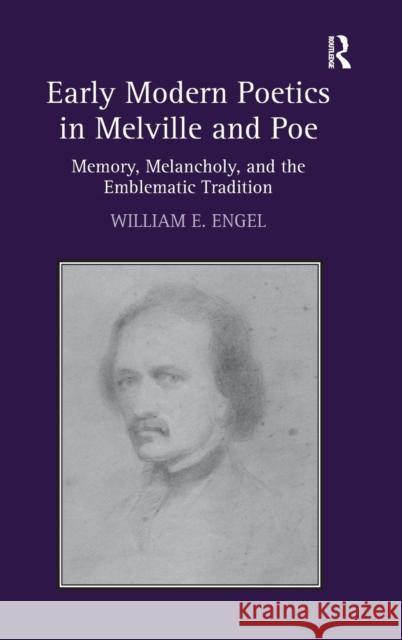Early Modern Poetics in Melville and Poe: Memory, Melancholy, and the Emblematic Tradition » książka
Early Modern Poetics in Melville and Poe: Memory, Melancholy, and the Emblematic Tradition
ISBN-13: 9781409435860 / Angielski / Twarda / 2012 / 208 str.
Early Modern Poetics in Melville and Poe: Memory, Melancholy, and the Emblematic Tradition
ISBN-13: 9781409435860 / Angielski / Twarda / 2012 / 208 str.
(netto: 695,40 VAT: 5%)
Najniższa cena z 30 dni: 705,23
ok. 22 dni roboczych
Bez gwarancji dostawy przed świętami
Darmowa dostawa!
Bringing to bear his expertise in the early modern emblem tradition, William E. Engel traces a series of self-reflective organizational schemes associated with baroque artifice in the work of Herman Melville and Edgar Allan Poe. While other scholars have remarked on the influence of seventeenth-century literature on Melville and Poe, this is the first book to explore how their close readings of early modern texts influenced their decisions about compositional practice, especially as it relates to public performance and the exigencies of publication. Engel's discussion of the narrative structure and emblematic aspects of Melville's Piazza Tales and Poe's "The Raven" serve as case studies that demonstrate the authors' debt to the past. Focusing principally on the overlapping rhetorical and iconic assumptions of the Art of Memory and its relation to chiasmus, Engel avoids engaging in a simple account of what these authors read and incorporated into their own writings. Instead, through an examination of their predisposition toward an earlier model of pattern recognition, he offers fresh insight into the writers' understandings of mourning and loss, their use of allegory, and what they gained from their use of pseudonyms.











